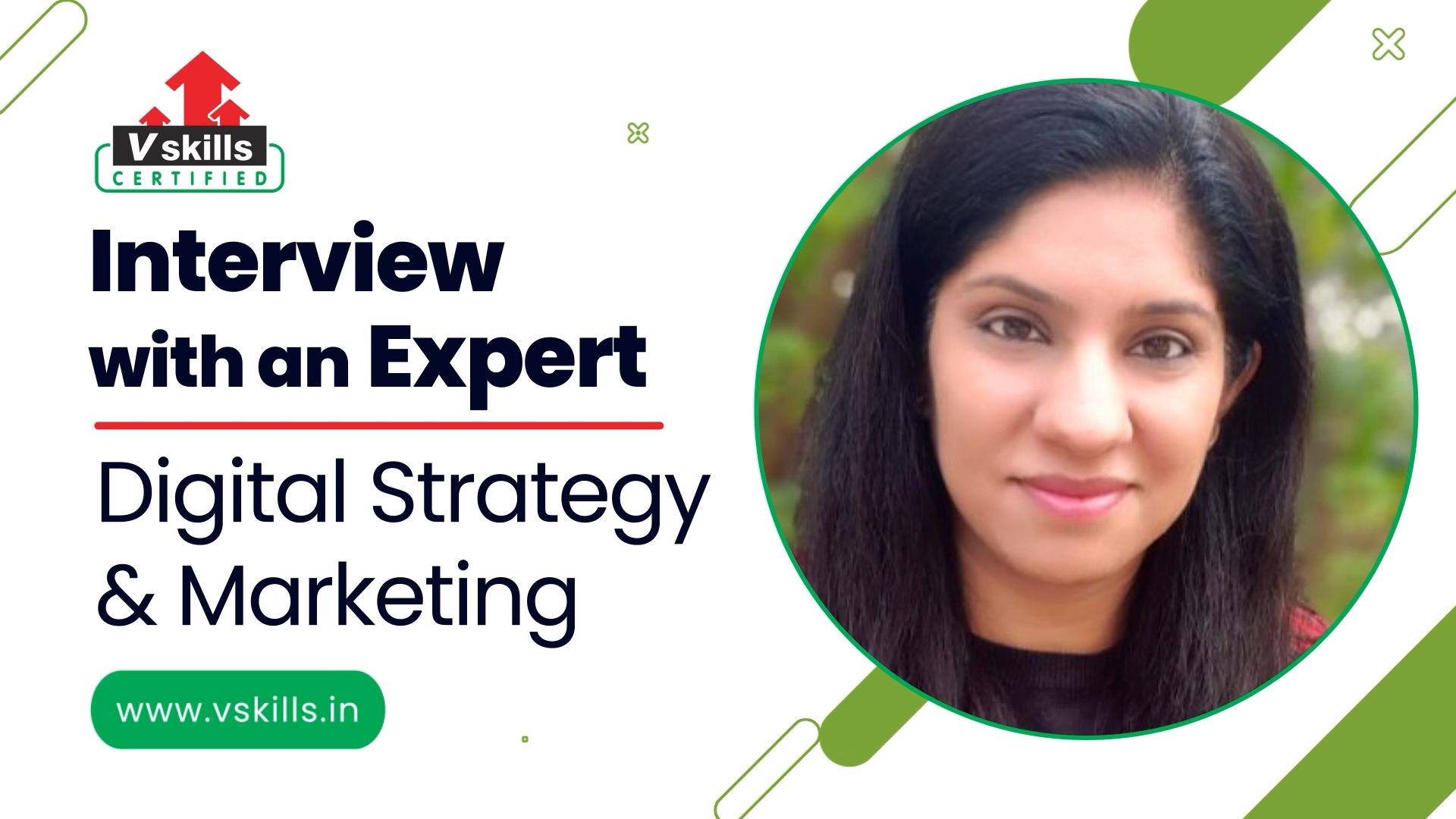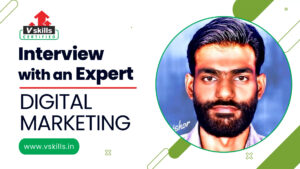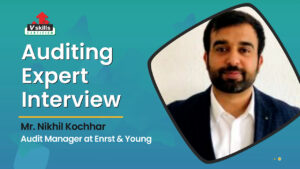Today we have with us Ms. Shivani Narang, a seasoned marketer who has mastered the digital marketing domain using a data-driven approach for the last 16 years. She is currently working as an AVP-Digital Strategy & Marketing Head at The Higher Pitch with a focus on ROI-driven digital solutions by evaluating the current marketing landscape and providing the best digital value-based strategy.
Shivani has completed her Bachelor of Engineering in the Electrical domain and has done a specialization in Integrated Marketing Strategy from IIM Lucknow. She is also pursuing her specialization in Digital Transformation from a premier B-school. She has worked for companies like Adobe, Mastech InfoTrellis, Simplilearn and MiSmile Network. Her achievements speak for themselves.
1. What inspired you to pursue a career in marketing?
Answer: It so happened that I completed my engineering and I got an opportunity with one of the MNCs in sales. Then I had different plans and moved into process excellence, and that’s when I discovered digital marketing. Coincidentally, I was getting married and moving from Delhi to Chandigarh. Doing my basic research in Chandigarh, I came across one of the first few agencies that were serving global clients in digital marketing, and that’s when I stepped into this stream of work.
And you know, I would say this was the right mix for me because digital marketing requires a lot of creativity, logical thinking, problem-solving ability, and technical skill set. So I think it was the right mix for me where I could connect with brands, relate to customers, and use my skills to create the demand and experience that they aspire to.
2. What according to you are the three most important skills to build a successful career in marketing?
Answer: I think marketing needs ideation and innovation ability of what your customers would need. So the skills that people would require to get into this field are definitely the ability to think beyond the traditional method of reaching out to customers. Secondly, communication, I would say, is to reach out to people and to relate and articulate your message to the customer in the way they need it.
Thirdly, innovative ideation using digital marketing, which is all about getting on digital platforms, so your friendliness towards data is crucial. You should be able to analyze and understand data to derive some pattern out of it and then make decisions accordingly. These 3 skills are required, and you’ve got to be very close to the data to get into marketing these days.
3. The global pandemic had no favourites and everybody and everything has been impacted in some way or the other. What was your strategy to bring sustainability to the business?
Answer: I think a lot of organizations were caught by surprise since their business models were neither digitally friendly nor digitally adapted, and that’s when there were new kinds of challenges that organizations came across. Right from demand generation to CRM, sales distribution, and order handling, everything became a challenge and there was a new environment completely being created. They engaged with software companies to give new kinds of experiences to their customers.
So the major challenges, I think, that organizations faced at that time were people-centric, being able to retain and engage employees. On the other hand, the customers are the ones to whom the companies were able to provide service in that sort of challenging environment.
Those businesses that stood or were sustained were those that managed to give that sort of digital experience. This is because everything went digital, and with complete lockdown, people can’t step out, so the experience companies could give through digital platforms was one of the essential aspects of sustaining themselves.
There were many new kinds of partnerships that filled in needed gaps. For instance, I will talk about sports brands. They engage with software companies to give new kinds of experiences to their customers, e.g., Nike and Zomato. The way they digitized themselves completely, the way they partnered with a delivery service and made things easier with no in-person delivery and only contactless delivery was provided.
There are a lot of examples in which businesses evolved in such a way that they managed to serve the customers based on the external environment they had. Over that, there were companies that managed to build a strong relationship with their employees and customers through transparency and the right kind of relationship. I think these were some important steps that businesses took and managed to sustain themselves.
4. In the business world, the term VUCA became popular when significant technological changes took place. However, with the pandemic, everything seemed insufficient. A new acronym then emerged – BANI. How should companies prepare for a BANI world?
Answer: I think during the pandemic, there was complete chaos in which the organizations had to function to sustain themselves. It teaches us to live in challenging times and yet show the capacity and resilience to sustain ourselves. Businesses need to have a plan B regardless of how well plan A is working. Secondly, having a collaborative environment within the organization gives a structured and strengthening team.
This makes employees feel important and that they have been given the right set of tools to adapt and perform in that changing environment. I would say there’s a lot of anxiety, which is another term that has been a part of VUCA. We should kill anxiety by being very emphatic and making people feel important. Even school children were able to manage their studies in a way that kind of came into the anxiety that kids and parents started having.
And lastly, I would say enhance your proactiveness and intuition by adopting AI/ML-based platforms so that you can serve what your customers need and you can think in advance and faster than the intuition method.
5. Experiential e-commerce is the future for all companies that are selling online. What’s your opinion about it?
Answer: I would completely agree with this. Now it’s all about delivering the right superior customer experience to your prospects and customers. A complete shift has happened in the way customers are interacting with the business, whether it’s a B2B or a B2C scenario. We see businesses spending close to 70% of their marketing budget to automate their marketing process and to centralize all their functions so that they can work in a more seamless and automated fashion.
Also, look at most of the e-commerce brands; they have integrated augmented reality into this entire environment. They also do different kinds of contests, basically offering an engaged environment by creating contests, virtual events, online games, etc. For instance, a lot of luxury brands like Zara or H&M are some of the brands. The kind of immersive experience they’re giving to their customers is absolutely fidgety to the extent that the customer really doesn’t need to feel the need to step out of their home.
So I think it’s now very customer experience oriented that businesses are following. There’s a huge shift in which businesses are investing to create an experience for their customers.
6. We are seeing a continued rise in Influencer Marketing. What kind of impact does it have on the overall business?
Answer: Now that we are moving into a virtual mode with Meta falling into place and so many other things happening virtually. You do not think like a human unless you don’t touch, feel, or hold a particular product or do not need a person for a service you want to engage with. There is still a lack of trust and credibility in customer business. That’s where you seek the right advice and get it from a popular personality or influence in that particular industry to give you the right kind of advice.
So I think, over a period of time, influencer marketing has started to play a very important role because people are able to relate to that person or that public figure. And be able to get convinced that if this kind of person is endorsing a particular product, it must be valuable. Basically, the entire approach is higher reach and rich content that goes together.
7. How do you handle when the designed marketing strategies do not perform as per the plan?
Answer: I think the beauty of digital marketing and transformation is that it gives you the right amount of data, flexibility and adaptability to a new style of something that is working and something that isn’t. You can find out that through data analysis. So there are multiple ways to course correct the failing strategy whether it’s about the right messaging in place, aligning the target, or aligning the messaging as per the target audience. Whether you change your designs through the planning or through organizing campaigns.
Also, maybe through A/B testing, a wonderful feature in marketing scenarios these days. It’s something that we didn’t see in the traditional method at all, but through digital platforms, yes. You can do AP testing whether it’s to do with design or with messaging, or with the product or offers. Product variation, pricing variation, anything can be done in a testing environment, and that’s where you can first correct the strategy in a way that worked and whatnot.
There’s always room for improvement, a room to make mistakes and then course correct them on a timely basis. Let that strategy run for some time and then post corrections on tactics that can happen simultaneously.
8. How do you stay up-to-date with the latest marketing trends and techniques?
Answer: I think there is so much to learn, so it’s very important to stay connected with the outside world. What you do and deliver within the four walls of your workplace should go beyond that. Therefore, you should definitely keep upskilling yourself with competitive certifications from renowned institutes. Be a part of webinars, summits, and make that network your network in that industry so that you meet the right kind of mentors and people who can learn and support you.
9. What advice would you like to give freshers who wish to join this field?
Answer: I think the market is very fluid, highly competitive and completely in demand. You got to keep yourself on doors. Learn the ropes to get the next big leads that you’re looking for. So do these certifications from renowned institutes and domain podcasts by some of the top readers. And be a part of blogs, webinars, summits, and events so you remain updated.
Other than that, shortlist the companies that you aim to work for and follow them. Learn what product solutions they are offering, what kind of case studies they are putting, and stay in touch with the people who work as employees or recruiters. Also, have a very strong presence on LinkedIn and keep sharing your thought process. Engage with the audience and other people in the same network so that they know your interest in a particular area or industry.
I would say lastly, stay connected with recruiters outside your network as well. Because it’s not only about aiming for the company but also at times you get a lot of freelancing opportunities which let you perform what you practically learnt. And why don’t you do this parallel while continuing to work or apply for the big lead you have in mind? But it’s important this industry gives you the facility of working and learning from freelancing and side projects. And then once you have the dream work that you have, you can work on it dedicated.




